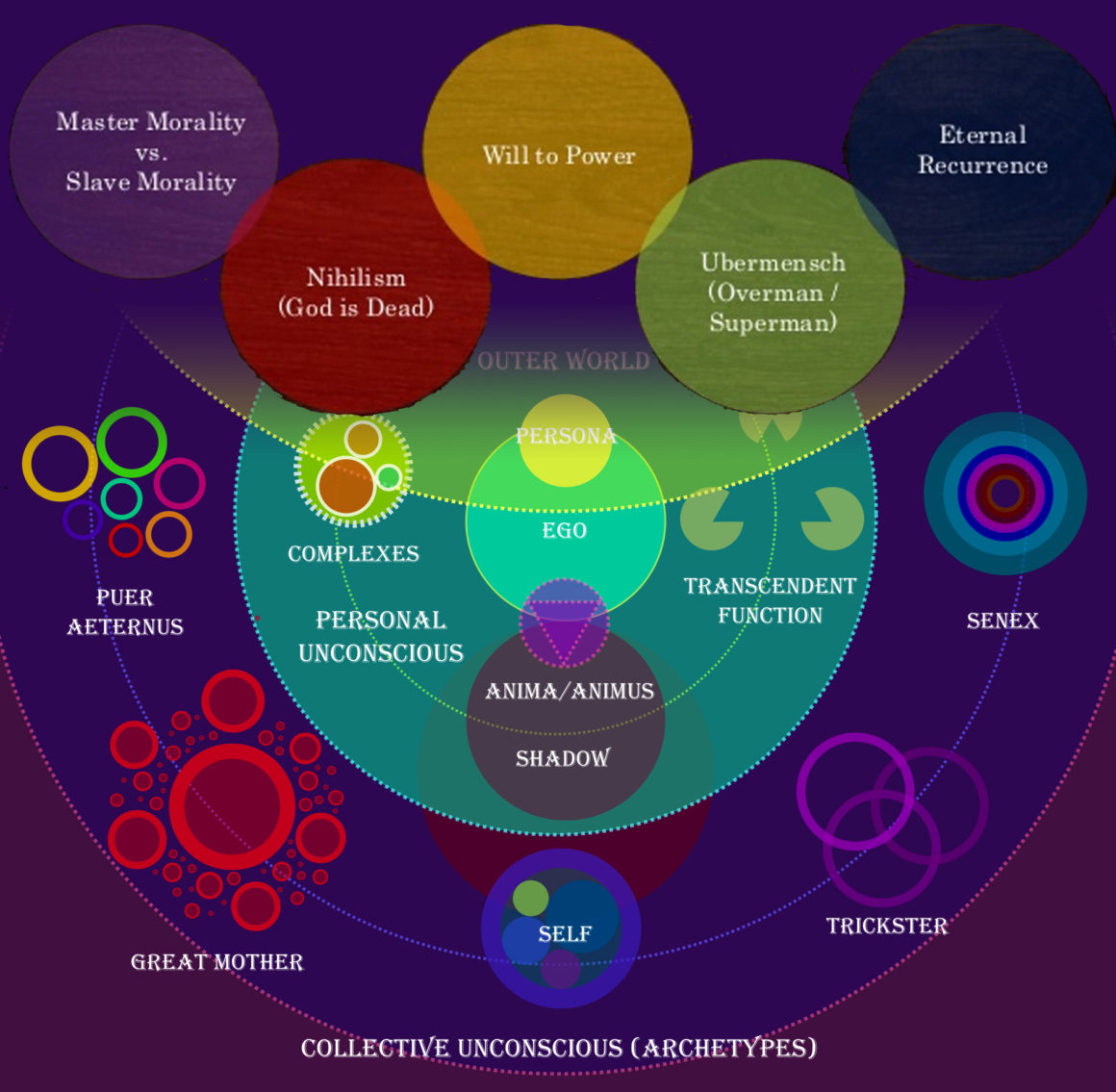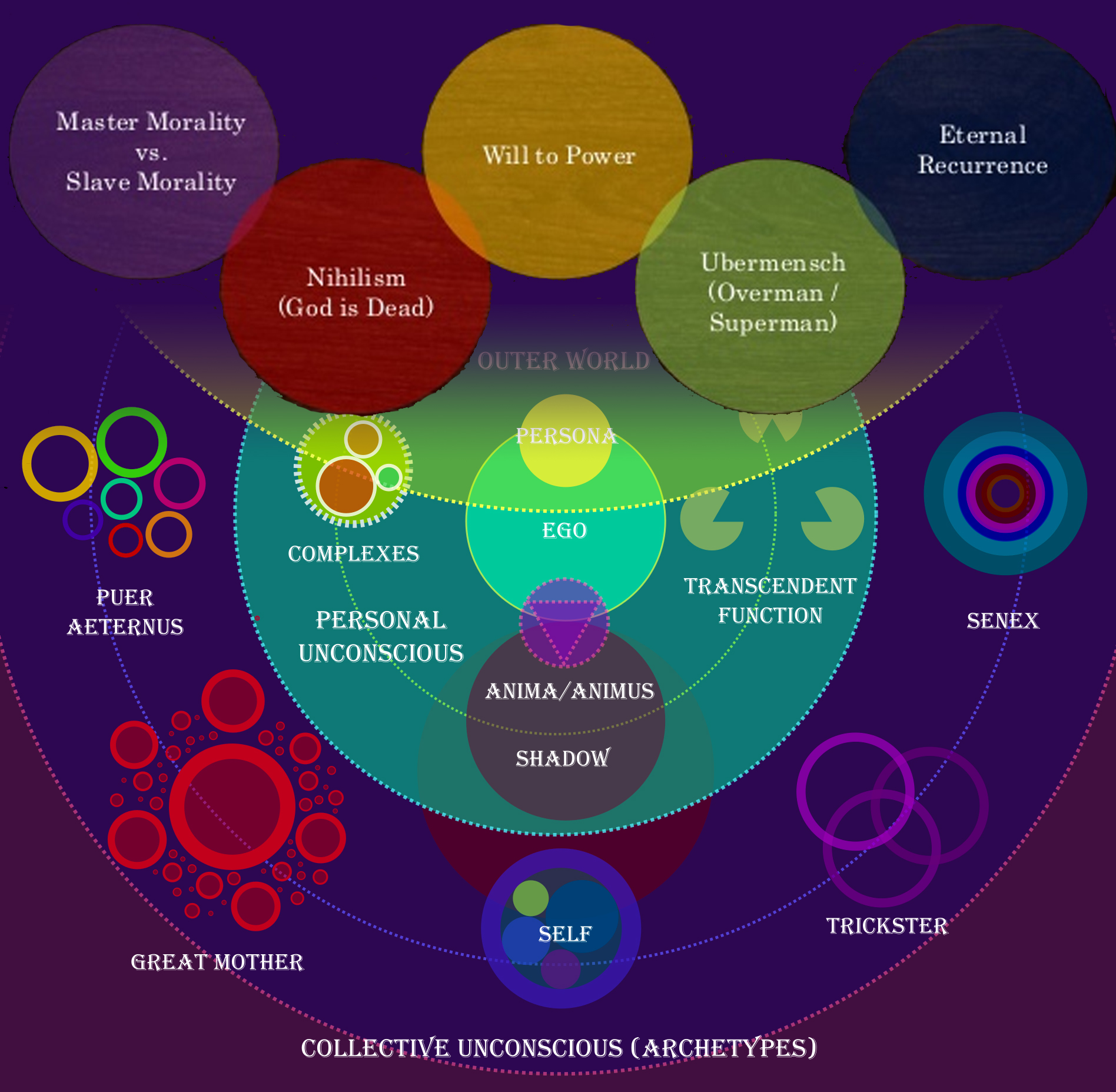
Archetypes and Ubermen: Nietzsche’s Disdain For The Common Struggles of The Oppressed And Jordan Peterson’s Meta-Narrative
“Peterson’s writings are a hodgepodge of Christian existentialism, Donald Trump’s The Art of the Deal, and E. O. Wilson. But the main philosophical issue is his Nietzschean conception of power. Only a strong will, exercising itself against a contingent and meaningless world — and against the weak — can ever hope to flourish […] Peterson’s philosophy presupposes a stark division between an atomized world of facts and a transcendent realm of meaning — what he describes as the tension between chaos and order. Peterson gives these principles of order and chaos Jungian significance as masculine and feminine archetypes.”
…
“We must reject the characterization of Peterson’s fan base as normal people who are sick and tired of the politically correct left; this assumption simply repeats Nietzsche’s disdain for the common struggles of the oppressed, including the struggles of racial minorities, women, and LGBTQ people. It accepts a standard of normal as defined by the mainstream media or, worse, by the alt-right themselves. For instance, Peterson’s refusal to respect people who use different pronouns to express their identity is no small issue, but a central one for recognizing the humanity of transgender people.
Peterson does not speak for what is “normal.” His jargon of authenticity — that he is just a simple academic fighting for truth amid so much political correctness and censorship — masks his authoritarian ideas. He calls Marxism a “murderous ideology,” but his paranoid and conspiratorial politics are hard to distinguish from the alt-right’s denunciations of cultural Marxism. Indeed, the line between Peterson’s authoritarianism and Richard Spencer’s paleo-Nazism is a blurry one. In their appeal to middle-class liberals, the reactionary’s best alibi has always been militant anti-communism.”
I found philosopher Harrison Fluss’s analysis of Jordan Peterson’s bullshit to be pretty spot on. And Peterson is yet another example of a conservative using a terrible reading of Nietzsche’s critique of slave morality to support the neo-Darwinian idea that some people are just inherently superior to others and therefore more fit to rule over them economically and/or politically. It’s interesting to me, though, that Peterson likes to use Jungian masculine and feminine archetypes to ground his misogynistic views because I thought it was always pretty well accepted that Jung was “the opposite of Nietzsche and a Kantian” (he is according to this Quora article anyway). And further, as Alexander Blum has pointed out, if Peterson is going to use Jung’s mythic work with regard to the Bible he should not leave out the vital part about the Divine Feminine and Holy Sophia.
But on the subject of psychoanalysis in general for a second, I’ve always taken it with a grain of salt. That is to say, as a process-relational and radical Christian thinker, who enjoys studying metaphysics, I can definitely recognize a meta-narrative when I see it! I think back to John Caputo famously calling Lacania/Žižekian psychoanalytic theory “Crypto Calvanism” and accusing folks like Žižek of being interested in Christianity only as an outsider that wishes to employ it in the service of something else; I nod my head in affirmation every time. Psychoanalysis (Jungian, Lacanian, Freudian, whatever ((and all the variations within each))) definitely offers up a metaphysical system every bit as complicated and overarching as those found in any religion, i.e. those psychoanalysts sure do know how to spin a good yarn about human nature! As this thorough critique of Freudian psychoanalysis points out, “the goal of psychoanalysis was no longer to find out what caused a patient’s problems, in a manner that is consistent with scientific knowledge about how the mind works, but rather to make up a good story about the origins of those problems. It is not therefore an accident that contemporary psychoanalysis finds a warmer welcome in departments of comparative literature than in departments of psychology.”
Anyway, to be clear, I’m not against a good meta-narrative that might help one to situate and/or orient her self, but two of the things I personally can’t stand about the streams psychoanalysis that I’m familiar with are how the role of the entity’s environment always seems to be overlooked (or downplayed) and, of course, the pessimistic psychic determinism (OMG the unconscious! Save me from it oh learned wise sage!). Ugh, no thanks. As I’ve written before, we humans are not “lacking,” and although I concede that every moment is a loss we mustn’t forget it is simultaneously a gain as well.
Tags:archetypesJordan PetersonJungmetaphysicsNietzschephilosophypoliticspsychoanalisistheory

I greatly enjoyed this map, but I am a little confused by the Mana archetype, the spiritual power from a supernatural source. The worldview philosophies above, are they supposed to represent the Mana? Just curious is all. 😊👍